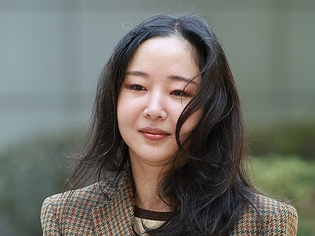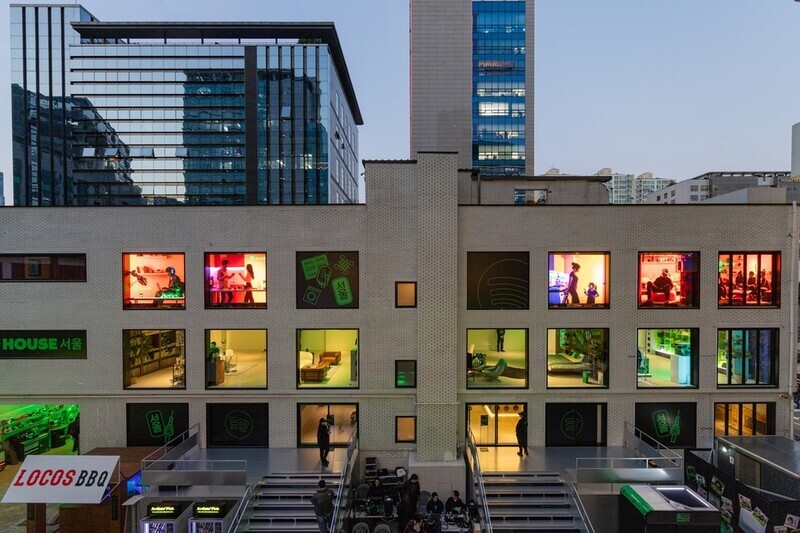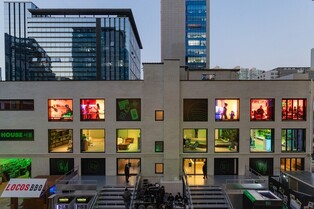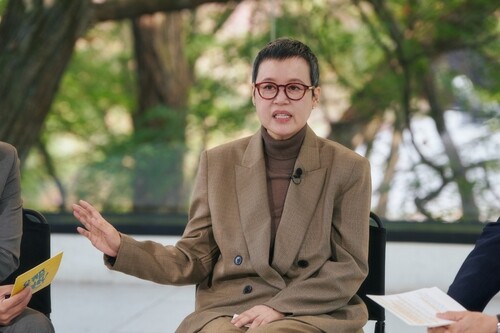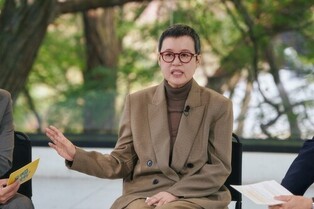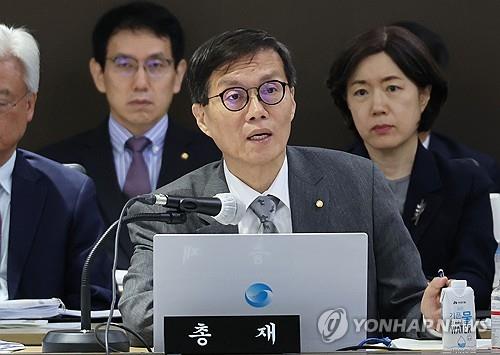 |
| ▲ Bank of Korea (BOK) Gov. Rhee Chang-yong speaks during a parliamentary inspection at the bank's headquarters in Seoul on Oct. 23, 2023. (Yonhap) |
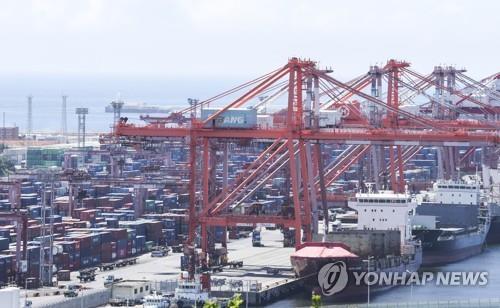 |
| ▲ Containers are unloaded from ships at a port in the southeastern city of Busan, in this file photo taken Aug. 1, 2023. (Yonhap) |
(LEAD) BOK-economic assessment
(LEAD) Korean economy set for mild recovery, but bumpy road still ahead: BOK
(ATTN: ADDS photo, more details in paras 8-9, 14, 17-19)
SEOUL, Oct. 23 (Yonhap) -- South Korea's economy will post a mild recovery amid a slowdown in inflation but face heightened uncertainties amid geopolitical tensions and higher rates in major economies, the central bank said Monday.
In a report to lawmakers for parliamentary inspection, the Bank of Korea (BOK) said the economy will post a mild recovery into next year as a slump in exports eases, while private spending remains relatively weak.
In May, the bank cut its growth projection for Asia's fourth-largest economy to 1.4 percent from the 1.6 percent predicted three months earlier.
South Korea's economy grew at a slightly faster pace of 0.6 percent in the second quarter of this year than three months earlier despite a slump in exports. In the first quarter, the economy expanded 0.3 percent following a 0.3 percent contraction.
"The country's current account has been in the black since May, and its surplus will be maintained on the back of a recovery in the IT sector," the central bank said.
The bank said the chipmaking sector, one of the country's backbones, is showing signs of a recovery.
"Adjustments in the sector's inventory levels will end during the first half of next year as demand-supply conditions improve," it said.
The central bank's growth outlook for the year is highly likely to be maintained, but next year's growth estimate should be reviewed from scratch.
"We forecast a 2.2 percent expansion next year, but it is hard to predict going forward depending on the Chinese economic situation and the Middle Eastern development," BOK Gov. Rhee Chang-yong said in a parliamentary inspection.
The central bank said weak demand-side pressure, along with stabilizing prices of farm goods, will help inflation slow down, but the conflict between Israel and Hamas may reduce the pace of the slowdown in inflation.
Data showed that inflation is moderating, although its pace gathered ground last month due to higher oil prices.
Consumer prices increased 3.7 percent last month from a year earlier, the fastest in five months, driven by higher oil costs and rising prices of some farm goods.
The BOK has predicted inflationary pressure to build up down the road, with inflation expected to stay over 3 percent around the end of the year, far higher than its target rate of 2 percent.
We had expected inflation to stay around 3 percent before the Israel-Hamas conflict, but the possibility is high that inflation could accelerate a bit down the road," Rhee said.
For the full year, the central bank expects inflation to be 3.5 percent.
The central bank said Asia's fourth-largest economy is also still faced with enhanced uncertainties, such as the direction of China's economy, the unfolding of tensions in the Middle East and the volatility in the global financial market.
Lee said the central bank should "seriously" consider a rate hike if the growing household debt is not curbed.
Household loans extended by banks in South Korea rose for the sixth straight month, led by rising home-backed loans.
Earlier, the BOK chief said it needs to take microeconomic measures first to rein in soaring debt and then interest rate adjustments can be reviewed.
(END)
(C) Yonhap News Agency. All Rights Reserved






















